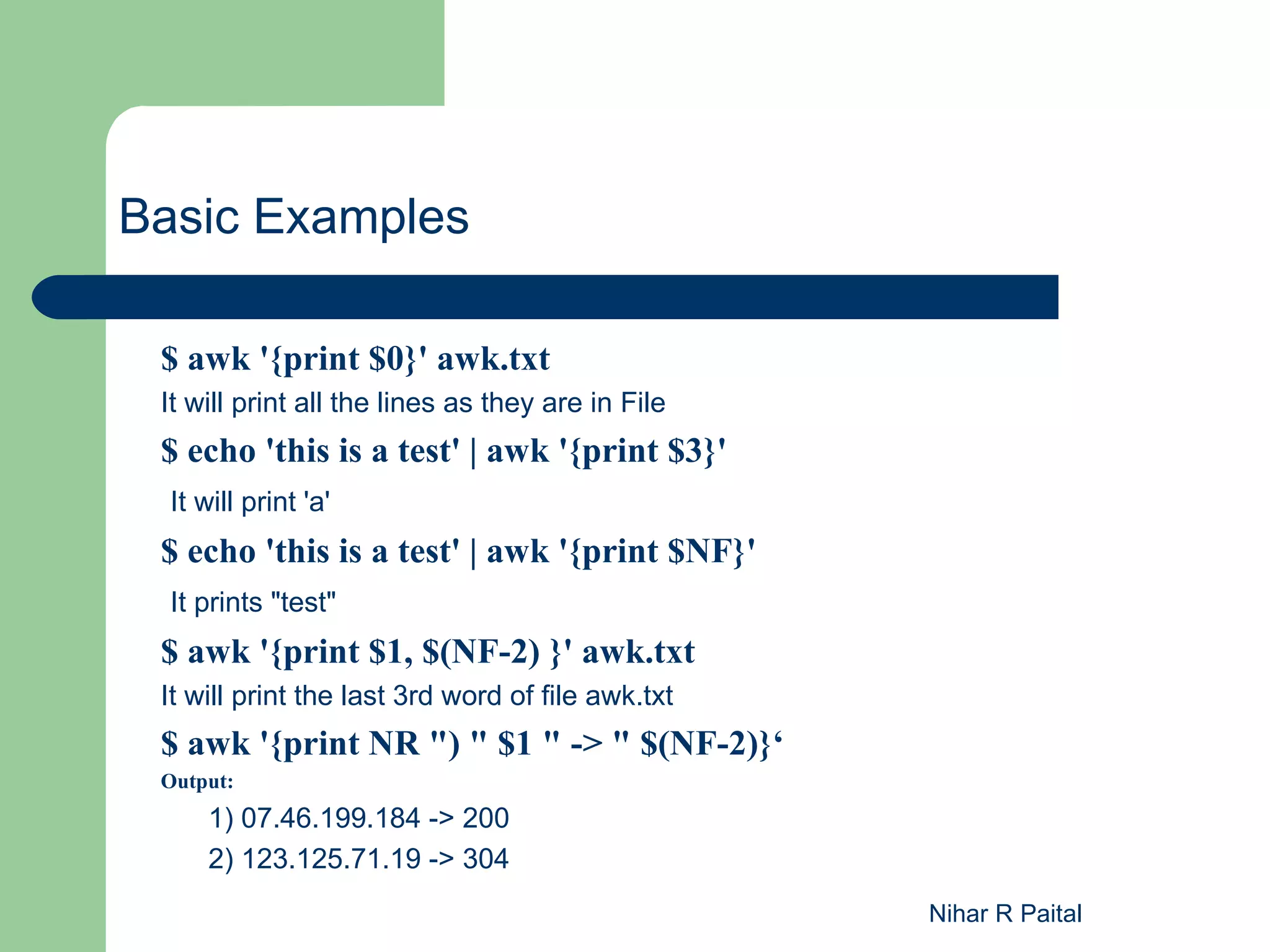Awk is a data extraction and reporting tool developed in the 1970s at Bell Labs to perform basic text formatting on input streams and files, using a scripting language to take actions on textual data and produce formatted reports. It parses input into fields separated by whitespace that can then be accessed and manipulated through variables like $1, $2, NF, and NR to extract and report on specific fields. Advanced uses include conditioning printing on field values, manipulating field values through pipes and sed, and accumulating calculations with variables over the entire file.



![It performs basic text formatting on an input stream ( A file / input from a pipeline ) Formatting using input file $ awk {print $n} Filename Example: $ awk {print $1} awk.txt > awk.txt.bak Formatting using a filter in a pipeline $ generate_data | awk {print $1} Example: $ cat awk.txt | awk {print $1} > awk.txt.bak Before proceeding to next slide please create a file named awk.txt with following Contents. 07.46.199.184 [28/Sep/2010:04:08:20] "GET /robots.txt HTTP/1.1" 200 0 "msnbot" 123.125.71.19 [28/Sep/2010:04:20:11] "GET / HTTP/1.1" 304 - "Baiduspider" Nihar R Paital](https://image.slidesharecdn.com/unix-class7-awk-120626121845-phpapp01/75/Unix-Class7-awk-4-2048.jpg)


![Advance use of AWK $ awk '{print $2}' logs.txt Output: [28/Sep/2010:04:08:20] [28/Sep/2010:04:20:11] The date field is separated by "/" and ":" characters. Suppose I want to print like [28/Sep/2010 [28/Sep/2010 $ awk '{print $2}' logs.txt | awk 'BEGIN{FS=":"}{print $1}' Output: [28/Sep/2010 [28/Sep/2010 Here FS=“:” means Field Separator as colon(:) $ awk '{print $2}' logs.txt | awk 'BEGIN{FS=":"}{print $1}' | sed 's/[//' Output: 28/Sep/2010 28/Sep/2010 Here We are Substituting [ with NULL value Nihar R Paital](https://image.slidesharecdn.com/unix-class7-awk-120626121845-phpapp01/75/Unix-Class7-awk-7-2048.jpg)
![Advance Use of AWK If I want to return only the 200 status lines $ awk '{if ($(NF-2) == "200") {print $0}}' logs.txt Output: 07.46.199.184 [28/Sep/2010:04:08:20] "GET /robots.txt HTTP/1.1" 200 0 "msnbot" $ awk '{a+=$(NF-2); print "Total so far:", a}' logs.txt Output: Total so far: 200 Total so far: 504 $ awk '{a+=$(NF-2)}END{print "Total:", a}' logs.txt Output: Total: 504 Nihar R Paital](https://image.slidesharecdn.com/unix-class7-awk-120626121845-phpapp01/75/Unix-Class7-awk-8-2048.jpg)
